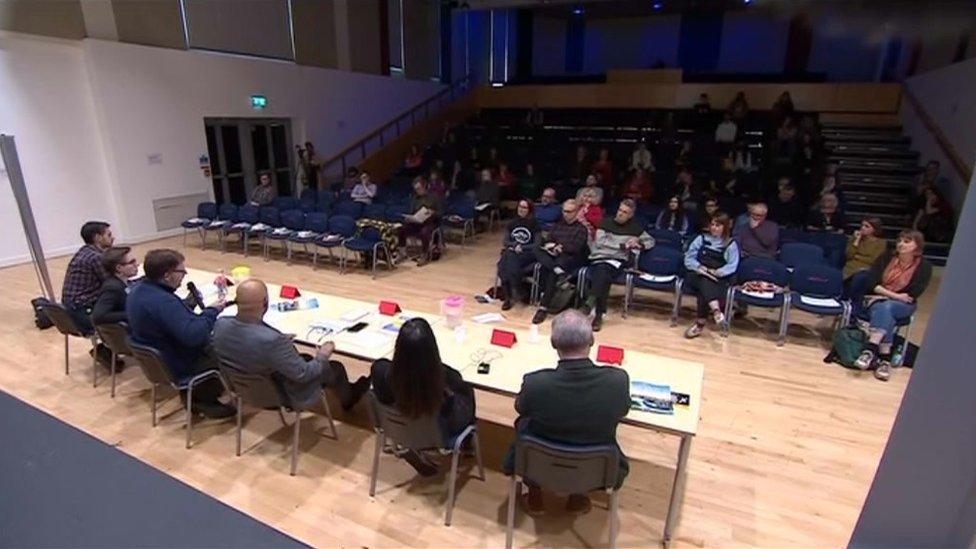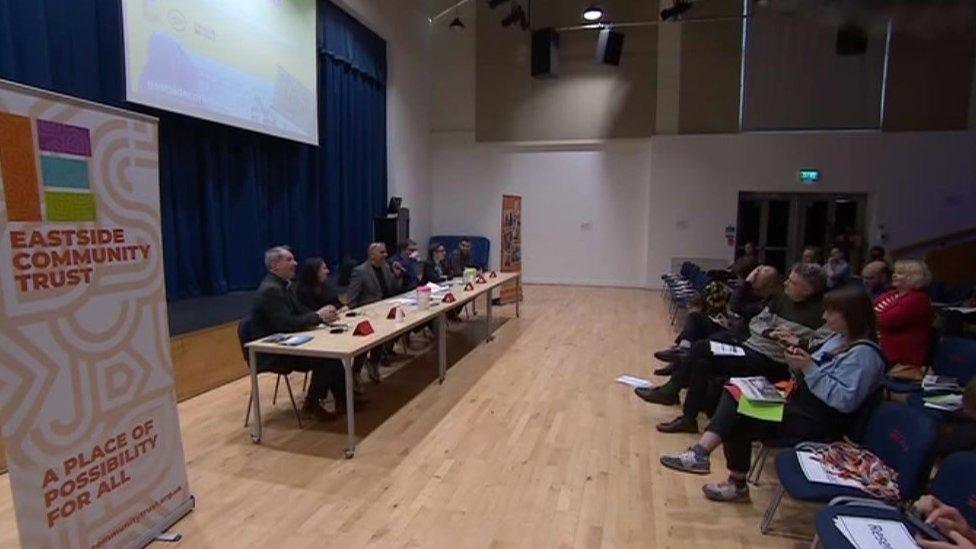Lack of Bristol mayoral referendum information criticised
- Published

The debate took place at the City Academy in Bristol
A former Bristol MP has criticised the city council for providing insufficient information about a mayoral referendum.
Voters will be asked on 5 May whether to keep the role of mayor or switch to a committee system with councillors.
Former Liberal Democrat MP Stephen Williams said the council should have sent "impartial information to every voter ... with their polling card".
The council said it had facilitated the poll promoting registration deadlines and making polling day arrangements.
Bristol currently has a Labour mayor, Marvin Rees.
He was preceded by independent George Ferguson who was the first mayor when the system was switched in 2012.
Labour councillor Marley Bennett said he had voted against holding the referendum as he was concerned about it costing taxpayers in the region of £650,000.
"I think the mayor can have many positives for Bristol, in terms of achieving things and making decisions, as opposed to a committee, which can lead to deadlock, delays and indecisive decision making," he said.
The exchanges took place at a debate on Thursday organised by the Bristol Cable and Eastside Community Trust.

Sitting on the panel was Carla Denyer (co-leader of the Green Party), Marley Bennett (Labour Councillor), Stephen Williams (Former Lib Dem MP) and Emma Harvey (CEO of Trinity Community Arts)
Issues surrounding party politics, low voter engagement and outcomes for future generations of Bristolians were among topics raised by the audience.
At the previous mayoral referendum in 2012, the council provided voters with a leaflet that explained the two different leadership options.
During the debate, audience members were asked whether they felt they had enough information to make an informed decision at the ballot box next week.
There was a 50/50 split of raised hands, with some people openly stating they did not feel able to make an informed decision.
Green Party co-leader Carla Denyer said she was in favour of the committee system, arguing that "it is better for inclusivity" and suggested the current mayoral system was an "inherently alpha-male way of running a democracy."
"It's Green party policy nationally to support the committee system because we think that it's fairer, more democratic and ensures better representation of the variety of views that there are in the city," she said.
"The more diverse the lived experience of the people in the room, the more likely we are to make decisions that are good for everyone."
Concerns were raised about the low level of public engagement with the referendum, especially amongst young people.
Bristol City Council said the council's role was to "support and deliver a fair opportunity for the residents of Bristol to cast their votes".
"This includes promoting the various deadlines set for people to register to vote, to register how they wish to cast that vote and the arrangements for polling day.
"Our activity includes issuing press releases, posting content to social media and ensuring our website remains up to date.
"These messages will continue to be publicised throughout the referendum period."

Follow BBC West on Facebook, external, Twitter, external and Instagram, external. Send your story ideas to: bristol@bbc.co.uk , external